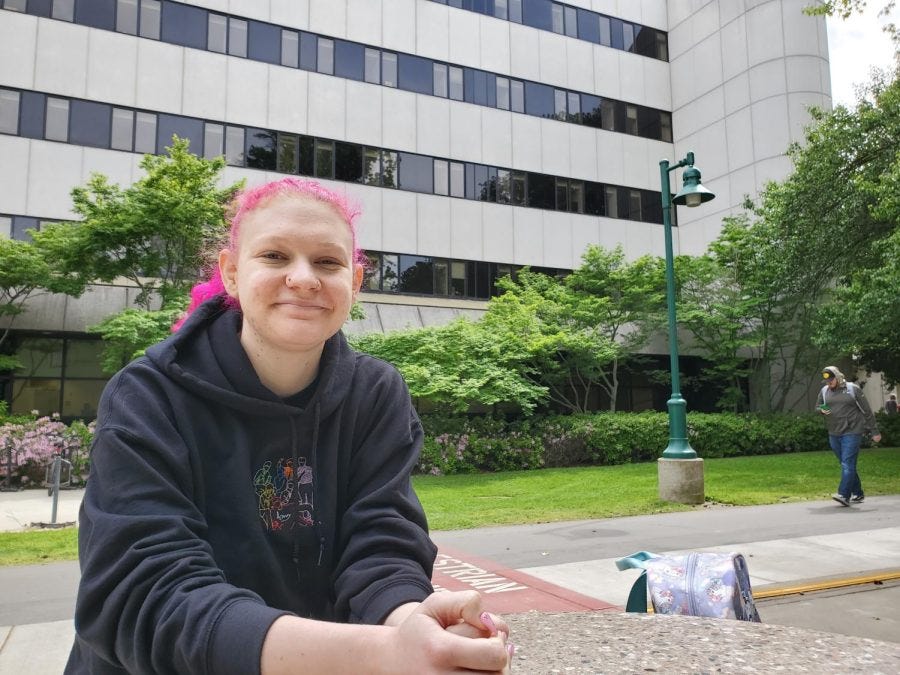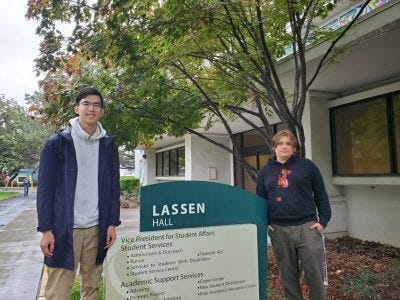Ready or not, students must start paying back loans in 3 months
Jack Freeman wrote this article for Sacramento State’s The State Hornet. It is available for republication or reference.

A pause of Federal student loan payments was extended by President Joe Biden until September, giving Sacramento State, among many other university students, three months until loan collectors can start calling again.
While meant to give students time to get their finances in order, this pause puts some in a precarious spot, waiting until the flood gates open up and all the loans they haven’t had to pay become due in September.
“It’s like having a dam that is falling apart and putting band-aids on it,” Sarah Williams, a junior history major, said.
Williams doesn’t currently have student loans, but because of the pandemic, she lost her job, meaning loans are likely in her future, she said.
Many of William’s concerns lie in her future ability to pay off the loans she might have to take out.
“[History is] not known for being the most well-paying field. If I do have to take out loans, it will take a lot to pay them back,” Williams said.
While Williams said she could acknowledge some of the good that comes with loans, it also feels unnecessary to her.
“I’m glad student loans exist and allow anyone to get an education because it is basically becoming a requirement for a career,” Williams said. “I wish that education came at a more affordable price so that students wouldn’t need to take out loans.”
The majority of student loans taken out by students at Sac State are federal, not private. Still, both saw an increase during the pandemic, according to Gwen Ado, campus partnership coordinator for the Student Service Center at Sac State.
“I would say the percentages of loans taken out have increased in both,” Ado said. “A lot more students are taking out federal over private.”
Ado, who helps students with their finances in the Sac State student service center, said that private loans are last resort than a first choice.
“For the most part, our federal loans have a lower interest rate and are fixed, meaning they don’t change,” Ado said. “While private loans may have a higher interest rate, it can fluctuate based on the economy.”
According to Ado, these loans don’t even have to go towards school payments.
“Loans can be good, because they can assist you in paying for things that you couldn’t pay for otherwise,” Ado said. “Maybe you can make school payments, but can’t pay for rent or food. These loans can help.
Some Sac State students said that now is the time to push for change.
Aaron David Gilbert-O’Neil and Alec Tong are two first-year political science majors organizing a rally at the state Capitol building to advocate for student loan forgiveness.

“I think taking out student loans is an unfair disadvantage for my fellow friends and classmates who have to face this issue…,” Tong said. “Reducing or canceling them would create a more level playing field for everyone at Sac State.”
Gilbert-O’Neil said he feels the “iron is right for striking” and thinks significant federal changes could happen with a bit of push from the local level.
“Recently I was on a Zoom call with Senate Majority Leader Chuck Schumer,” Gilbert-O’Neil said. “He said that right now the White House is more open than ever to forgiving student loans… if we need to make a push it has to be now.”
Tong expressed the same sentiment, adding that this problem is urgent.
“I think it’s important to remember that everything is a process and while I think that President Biden is getting to it, it isn’t fast enough,” Tong said.
The rally is planned for May 8, and Gilbert-O’Neil and Tong said they think they could contribute to the cause if it goes well.
“Why should I wait to do something now?” Gilbert-O’Neil said. “Why would I wait for this debt to accumulate now when I can do something about it today and make this change possible?”
With the extended pause coming to an end, many students prepare to pay out of pocket.
“For the past two years these payments have been stopped and the government has gone on,” Gilbert-O’Neil said.“They’ve shown they don’t need this money to keep functioning, so why keep asking for it?”



